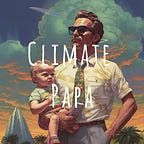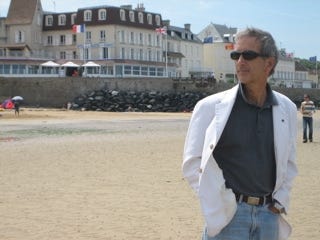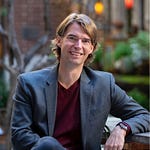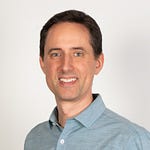Listen here, on Spotify, Apple, or wherever you listen to podcasts by searching for ‘Climate Papa.’
How do you make decisions for the next hundred years based on evidence you only know today? That’s the question Gary Yohe has spent more than four decades wrestling with. One of the first five economists in the world working on climate change back in the early 1980s, Gary served as the Coordinating Lead Author for multiple IPCC report chapters, including the Fourth Assessment that shared the 2007 Nobel Peace Prize. His research has shaped how the world understands climate risk, bridging economics, science, and policy. Instead of chasing a perfect century-long plan, he argues we should treat climate as a risk management problem—act, learn, adjust. It’s an idea that changed the field: policy as an iterative process rather than a single bet on the future.
We talk about how this shift happened and what it means today, from San Francisco’s sea-level strategy—where most of the city plans for a two-foot rise, but why the Embarcadero prepares for six—to the limits of insurance as climate risk becomes unpriceable. Gary channels John Holdren’s line that “we can abate, we can adapt, or we can suffer,” and explains why the catastrophic tail risks will never be fully insurable. He shares lessons from decades of human behavior research: how Florida’s hurricane-proof houses paradoxically increased deaths as people stopped evacuating, and how Outer Banks homeowners started building intentionally ‘disposable’ beach houses when insurance vanished. Along the way, he reflects on the communication gap that dogs climate science—how misinformation can be careless, but accuracy must be flawless—and the discipline it takes to keep public trust.
Now in his seventies, Gary calls himself “a foot soldier in the climate wars.” What keeps him going isn’t blind optimism but something sturdier. Quoting Václav Havel, he distinguishes hope from optimism: optimism expects things will work out; hope believes your actions might make a difference. That’s what motivates him when he imagines his nine-year-old twin granddaughters asking, “Papa, what did you do when all this was happening?” His answer: “I was doing everything I could. And I really thought I might make a difference. And that gave me enough hope to think it was worth the time to do it.”
Referenced:
Get connected:
Gary - Wesleyan | Climate Cafe
Ben - LinkedIn | Climate Papa
Feedback? Guest ideas? Get in touch by emailing ben@climatepapa.com
Music: Slynk & Lazy Syrup Orchestra - Mellow Kinda Hype (Balkan Bump Remix)














